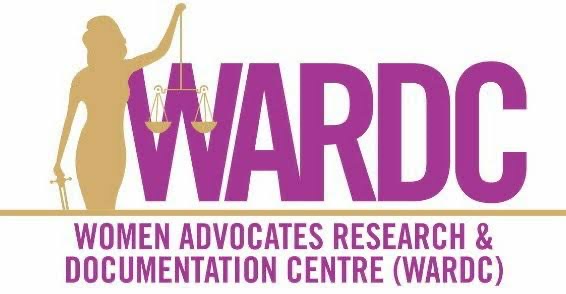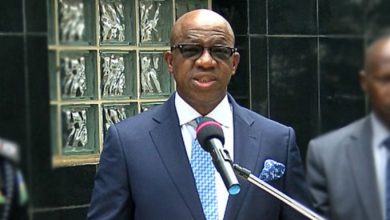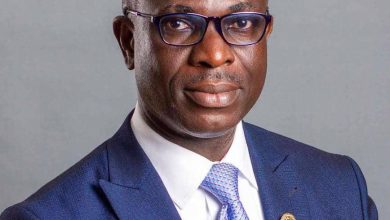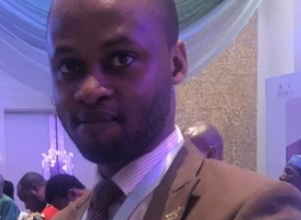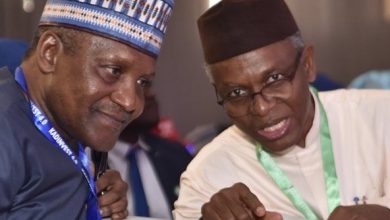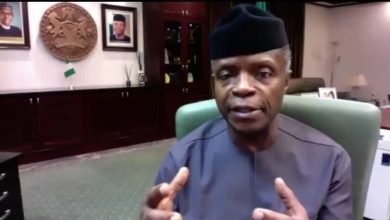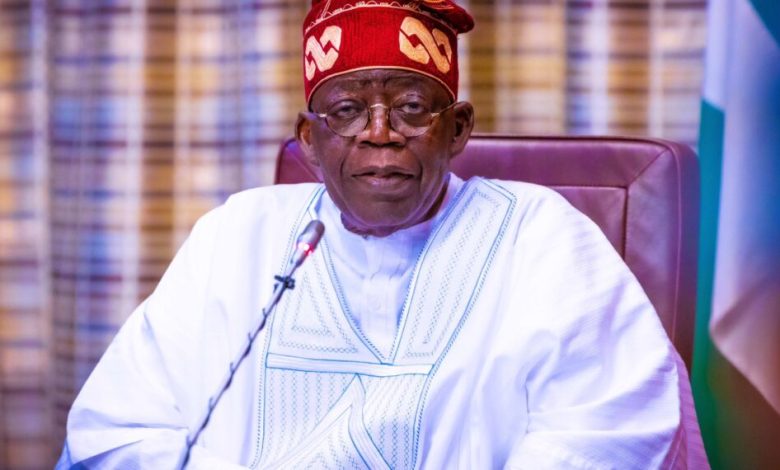
Tinubu, Nigerians and palpable fear of palliatives
By Olufemi Orunsola
An elderly professor friend of mine who is fond of throwing his self-invented proverbs at situations to drive home his point recently threw one of his ballistic proverbs that struck and stuck to my memory. His words; ‘Anyone whose mother got killed by a mad man freely roaming the streets should not be blamed for picking a race whenever he is suddenly approached by a shabbily clad, weird-looking auto mechanic right on the streets.’’ In essence, once bitten, twice shy! That self-invented modern proverb bears much imports for the barrage of palpable fears, public criticisms, cynical outcries, reservations and outright condemnations in some quarters for the fuel subsidy removal palliatives recently announced by the Federal Government and some state governments in Nigeria.
Indeed, only an anti-masses element will go all out to shut down people who have expressed their fears and other shades of contrary opinions and emotions about the newly announced palliative initiative given the relatively unpalatable precedence of that word ‘palliative’’ itself in the unwritten socio-economic dictionary of Nigerians.
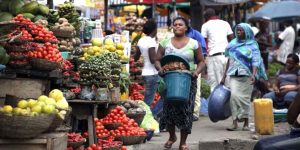
Although it is believed and often said in many quarters that Nigerians, being an extremely resilient people, tend to suffer collective amnesia and readily forget history, it remains doubtful if Nigerians will by any means collectively forget the pains, throes and sighs suffered during the phases of national lock downs occasioned by the COVID-19 pandemic and the attendant deprivation that greeted that remarkably unforgettable time in the history of the country. No, not so soon!
For the records, it would be recalled that the Buhari-led Federal Government had at that time, equally claimed to have set aside N500bn for Covid-19 intervention programmes through its Economic Sustainability Plan unfolded in phases with the initial establishment of the Presidential Task Force on COVID-19 by President Muhammadu Buhari. Headed by Boss Mustapha, the Secretary to the Government of the Federation, the task force was mandated, alongside other government agencies, to coordinate and oversee Nigeria’s multi-sectoral intergovernmental efforts to contain the virus’ spread. The Nigerian government also initiated a process to provide palliative measures, including funds disbursements and food items distribution to Nigerians, especially the marginalized and vulnerable.
It would be vividly recalled that the Federal Government under former President Muhammadu Buhari had floated five tracks of Covid-19 Relief under the Nigeria Economic Sustainability Plan (NESP) approved by the Federal Executive Council (FEC) in July 2020. The tracks covered were highlighted to cover the following: Payroll Support Scheme, Artisan and Transport Scheme, Formalization Support Scheme, General MSME Grants and Guaranteed Off-take Scheme. Government sources had reported that the Nigerian Govt paid no less than N57 billion to over 1 million people considered to be vulnerable and badly hit by the effects of the pandemic.

However, contrary to claims by government sources on the successful implementation of the Covid-19 relief funds and corresponding disbursement of the funds to targeted citizens, there were contrary shades of opinions in some public quarters that the funds were either not judiciously and equitably distributed or were as usual, diverted by some powerful individuals into untraceable private pockets. Minister of State, Federal Ministry of Industry, Trade and Investment at that time, Mariam Katagum, had openly affirmed that the tracks of the MSME Survival Fund Scheme meant to cushion the effect of COVID-19 on businesses could not be benefitted by all. Mrs. Katagum also admitted that the steering committee in charge of the schemes experienced some setbacks while implementing the scheme. She highlighted the setbacks to have included: failed payments, interconnectivity problems between banks and wrong bank details on the part of the applicants/prospective beneficiaries.
Again, for the records, there were reports and pockets of unconfirmed allegations by the Civic Advocacy Groups such as, BudgIT that COVID-19 palliatives were hijacked and distributed among politicians in the thick of the coronavirus pandemic. In a report on COVID-19 Fund Management titled “COVID-19 Fund: Fiscal Support, Palliative Analysis & Institutional Response,” the group expressed worry over the poor accountability mechanism in the management of the Covid-19 fund and distribution of palliatives.
It would also be recalled that a group of Nigerian businesspersons and corporate organizations, named Coalition Against COVID-19 (CACOVID), contributed billions of naira to help the country fight the deadly corona virus. Unfortunately, there were allegations against state governors in Nigeria, who many social media borne reports accused of hoarding the food items and hijacking same for stealthy distribution to party members, party chieftains and party loyalists instead of the marginalized and vulnerable citizens. Of course, the governors, in swift reactions, promptly denied hoarding the palliatives donated by the organized private sector to ease the economic hardship imposed on the poor by the COVID-19 lockdown and made a case for the governor’s handling of the palliative funds and items. According to them, a part of the contribution was used to build medical facilities and procure equipment and drugs across the states and Abuja. Another part was then earmarked for the provision of food items to the country’s poor and underprivileged to help lessen the economic suffering triggered by the pandemic. In their own defense, the Governor’s Forum through their spokespersons had maintained that the food items were delivered to state governments which held them in warehouses while they were planning the logistics for their distribution to the target beneficiaries.

Ultimately, in the wake of the ENDSARS protests that spread through the country in the last quarter of 2020, with rampaging youths taking to the streets in anger and hunger, many of those warehouses believed to be hide outs where governors hoarded the food items meant for the vulnerable citizens were raided and looted by hoodlums in the violence that trailed the #EndSARS protests called to push for an end to police brutality.
In all, many Civil Advocacy Groups that claimed to have reviewed the activities of these agencies as well as the support received by the government from both private and international institutions, including the $5.6 billion received as donations, grants, and relief support by the Nigerian government, had expressed concerns about intervention programmes from private concerns over the observation that ‘not much has been done regarding COVID-19 fund accountability in Nigeria,”.
Indeed, President Bola Ahmed Tinubu has done the right thing by openly acknowledging the fact that Nigerians, especially the vulnerable and marginalized citizens, are suffering biting effects of the removal of fuel subsidy by the government. The President has equally done well to have openly expressed his good intentions to alleviate the sufferings of the Nigerians via cushioning policy drives and social actions like the announced palliatives now on the front burner of national attention, it is crucial for Mr. President to listen to the noises and the body language of the masses, given the understanding of the fact that the Nigerians he now has to deal with are the same set of Nigerians who had witnessed the announcement and administration of covid-19 palliatives by the former administration and the tumultuous ENDSARS crisis of that time.

Mr. President, in tandem with his renewed hope agenda should realize that the Nigerians he is now dealing with are Nigerians who largely hold the belief that they were ripped off, deprived and were once haplessly bitten by a poorly implanted covid-19 relief fund/palliative regime. To say that Nigerians, based on their recent experiences, have palpable phobia of that word palliative itself may therefore not be out of place! That phobia may be said to be tinted with some degrees of mixed feelings and emotions that smacks of lack of trust in government and the ability of the government to really institute a social support system that is equitable, accountable, transparent and therefore dependable. Before now, millions of Nigerians had lost hope in the effective working of things, people, institutions and systems in the country. The psyche and psychology of Nigerian masses have been badly damaged, abused and pushed into a state of trauma and ultimately, landed in a state of comma. President Tinubu should therefore realize that in this crucial post-Emefiele economic era, it is not enough to have and announce good relief intentions for Nigerians, conscious, properly publicized and coordinated efforts and mechanisms must be put in place to win the confidence of the masses, thus healing the old wounds of deprivations, starvations to which past administration has subjected Nigerians. It would be recalled that when President Tinubu, in his bid to hit the ground running, announced the students loan policy of his administration, the commendable move which is an outright fulfillment of his election promise to Nigerian students, the move was almost immediately greeted with negative reactions, pessimistic opinions and criticisms in many quarters by critical stakeholders in the education sector.

These two experiences and developments both boil down to the fact that Mr. President needs to put in place an intensive national re-orientation campaign that will convince Nigerians that have hitherto caught the Japa flu, flying out of the country in droves, to pause and ponder, and accept his new leadership offer that is determined to build a new Nigeria where things work for the good of all – just like they do in those countries to which Nigerians have been migrating. Actualizing this tall dream will no doubt demand that the President, like a good doctor who is attending to a patient in a critical emergency ward, maintains a democratic culture of reading the heart beats of Nigerians, monitoring the socio-economic temperature of its citizenry who are obviously going through a social emergency situation.

Certainly, Mr. President being a man with a track record of deploying technocrats and the best of brains to drive governance should fast track the formation of his cabinet, expectedly populated with not just politicians, but high flying technocrats who can help government to effectively deploy technology and new global leadership skills of data science, advanced biometrics, artificial intelligence blended with native intelligences to deliver the planned palliatives and other dividends of democracy to a broad spectrum of vulnerable Nigerians in their different demographic categories without allowing political actors, gladiators and jobbers to hijack and frustrate the good intentions of the President.
As the President himself has recently openly admitted, Nigerian masses are seriously suffering. They are mostly hungry. Well, hungry folks are not the most rational people to lead or deal with in life because their emotions of anger, hate and the propensity to engage in bestial survivalist struggles form the corner stone of revolutions which the ruling class could not contain or control throughout human history. May President Bola Ahmed Tinubu succeed in his bid to renew the hope of Nigerians in a new Nigeria where things work.
Olufemi Orunsola, a Media Consultant and Development Communication Advocate writes from Abeokuta, Ogun State, Nigeria. Mobile: 08038382796
FOOTNOTE: You want to share story with us? You want to advertise with us? You need publicity for product, or service, or event? Contact us on WhatsApp +2348073463653 or email penpushing@yahoo.com



